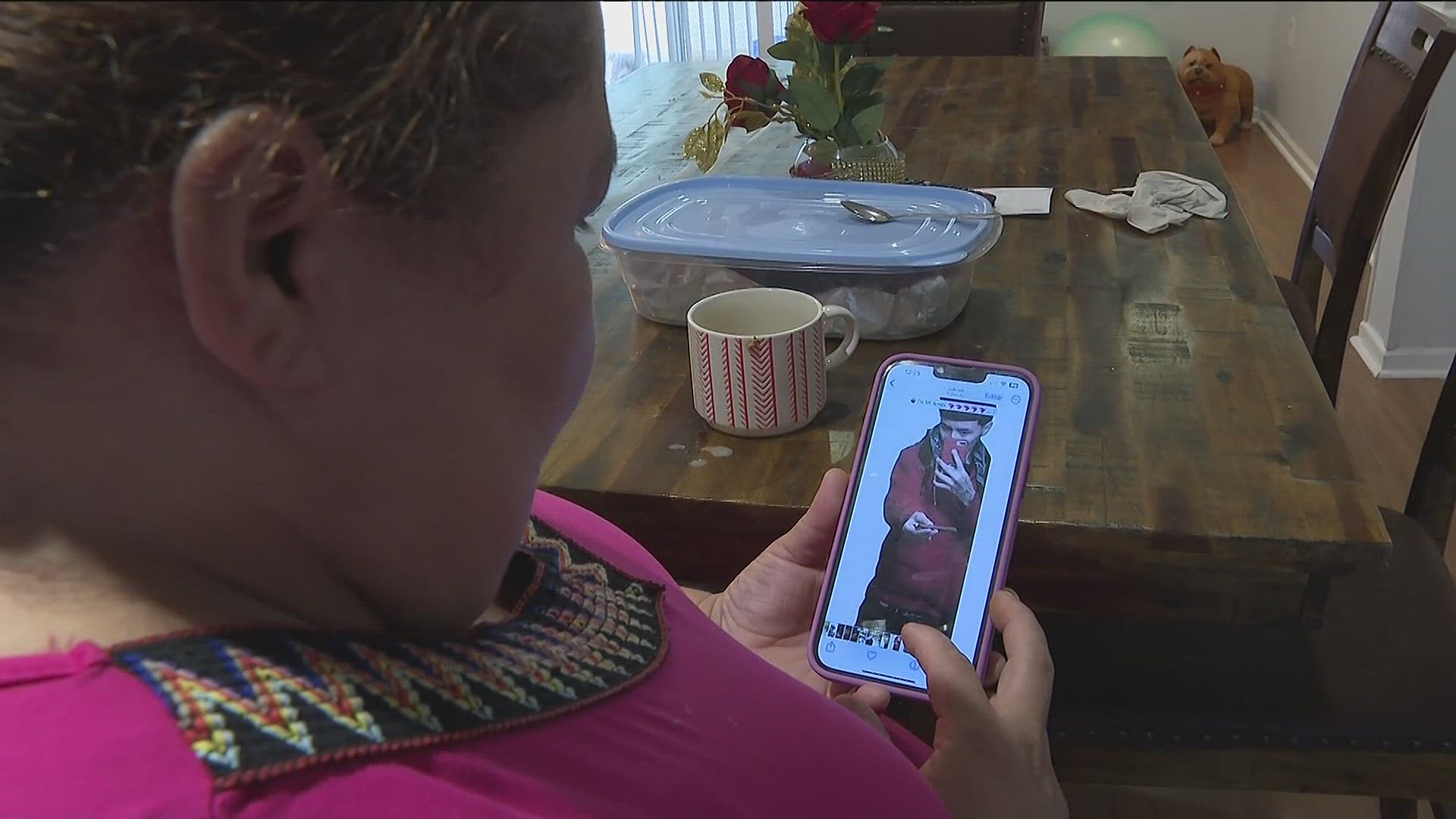ATLANTA — New numbers show the startling increase nationally in overdose rates within the Hispanic community. Many of those deaths have been tied to fentanyl, data shows.
According to a new study published in the National Library of Medicine, Hispanic overdose rates grew by 287.5%, compared to 160% for non-Hispanics from 2010 to 2021.
The study also shows fentanyl-related deaths rose 7,150% for Hispanic people compared to 2,052% for non-Hispanic people.
That impact can be seen in Atlanta.
11Alive has reported on several Latino teens losing their lives to overdoses this year alone - 17-year-old Rodrigo Floriano Mayen was one of them, according to Gwinnett County Police. His mother, Francisca Mayen, still remembers finding him in February.
A 17-year-old was later charged with concealing Rodrigo’s death.
"We’re feeling just as sad. I have the same pain, every single day," she said in a Spanish interview that has since been translated to English. "Even though he’s not here, I remember him constantly. I remember the day I found him. That day still fills me with rage."
Earlier this year, the Gwinnett County Medical Examiner told 11Alive that from January 2021 through February 2023, 18 teens died from drug overdoses. 11 of the 18 were Hispanic, and 17 of the 18 were killed by ingesting fentanyl.
“He used to always tell me he was concerned about fentanyl. He’d say a lot of his friends died from it," Francisca mentioned.
Belisa Urbina, co-founder and CEO of nonprofit Ser Familia, said the organization, which provides mental health services to families, has seen an increase in those who need support due to underlying causes of drug use.
“I think that is related to the fact that our Latino kids feel more isolated than kids from other races and ethnicities," Urbina explained. "They shoulder responsibilities that are way bigger than other teenagers and kids their age. Many times they’re the family interpreters, they’re the ones doing the family budgeting.”
Urbina clarified that Ser Familia does not offer rehab services but does support families undergoing the emotional and mental struggles that go along with it.
"We’ve seen so many cases coming from DFCS and the school systems. They continuously send us referrals. Families themselves self-refer their loved ones to us," she said.
Urbina said fast action is part of the solution to bringing down the statistics and providing different outcomes. People can check out Ser Familia's resources here.

